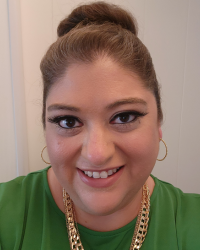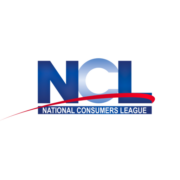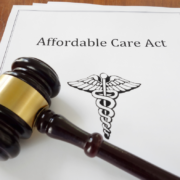The National Consumers League Welcomes Four New Board Members to Advance Fairness, Safety, and Equity
Media Contact: Lisa McDonald, Vice President of Communications, 202-207-2829
Washington, DC – The National Consumers League (NCL) today announced the appointment of Cynthia Bauerly, Amy L. Hinojosa, Josh Hurvitz, and Brian Young to its Board of Directors. The new members bring deep expertise in public policy, consumer advocacy, law, and organizational leadership, strengthening NCL’s work to advance fairness, safety, and equity for consumers nationwide.
“These leaders bring an exceptional breadth of experience and a shared commitment to protecting consumers,” said NCL’s CEO Sally Greenberg. “Their insight and leadership will help NCL confront emerging challenges in the marketplace while continuing our longstanding fight for fairness and accountability.”
 Cynthia Bauerly, Founder of Bauerly Consulting, is a longtime American civil servant, serving in senior roles in law, government, and policy at both the state and federal levels. She served as Commissioner of the Minnesota Department of Revenue from 2015 through 2020. She previously served as a Commissioner, Vice Chair, and Chair of the Federal Election Commission, and as Legislative Director and Counsel for United States Senator Charles E. Schumer of New York. Bauerly has also worked in private practice in Minnesota and Washington, D.C., specializing in complex litigation and appellate law, with a focus on intellectual property.
Cynthia Bauerly, Founder of Bauerly Consulting, is a longtime American civil servant, serving in senior roles in law, government, and policy at both the state and federal levels. She served as Commissioner of the Minnesota Department of Revenue from 2015 through 2020. She previously served as a Commissioner, Vice Chair, and Chair of the Federal Election Commission, and as Legislative Director and Counsel for United States Senator Charles E. Schumer of New York. Bauerly has also worked in private practice in Minnesota and Washington, D.C., specializing in complex litigation and appellate law, with a focus on intellectual property.
 Amy L. Hinojosa, President and CEO of MANA, A National Latina Organization, where she leads national efforts to strengthen Latina leadership through mentoring, education, and advocacy. She is a nationally recognized voice on equity and inclusion and serves in leadership roles across multiple national coalitions.
Amy L. Hinojosa, President and CEO of MANA, A National Latina Organization, where she leads national efforts to strengthen Latina leadership through mentoring, education, and advocacy. She is a nationally recognized voice on equity and inclusion and serves in leadership roles across multiple national coalitions.
 Josh Hurvitz, a Partner at NVG, leads the firm’s technology, media, and entertainment practice. A former Vice President for Public Policy at Time Warner Inc., he brings extensive experience in intellectual property advocacy, corporate merger review, and congressional policymaking.
Josh Hurvitz, a Partner at NVG, leads the firm’s technology, media, and entertainment practice. A former Vice President for Public Policy at Time Warner Inc., he brings extensive experience in intellectual property advocacy, corporate merger review, and congressional policymaking.
 Brian Young, Vice President of I Street Advocates, brings a strong background in public policy and consumer advocacy, with a career focused on advancing effective governance and consumer protections across complex regulatory environments.
Brian Young, Vice President of I Street Advocates, brings a strong background in public policy and consumer advocacy, with a career focused on advancing effective governance and consumer protections across complex regulatory environments.
“These appointments significantly enhance NCL’s ability to meet today’s consumer challenges,” said Jon Leibowitz, President of NCL’s Board of Directors. “Their collective experience will help guide our work as we push for a fairer, safer, and more equitable marketplace.”
###
About the National Consumers League (NCL)
The National Consumers League, founded in 1899, is America’s pioneer consumer organization. Our mission is to protect and promote social and economic justice for consumers and workers in the United States and abroad. For more information, visit www.nclnet.org.

























